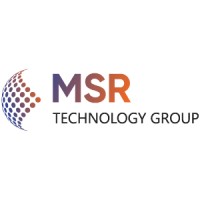Description
- Strong software engineering background (10+ years) in full-stack application development with a proven track record of consistently delivering high-impact software products in a timely manner. (Combines experience level and delivery focus)
- 3+ years of solid experience as an Application or Solutions Architect delivering enterprise solutions at scale using modern cloud-native technologies (AWS preferred). (Highlights architectural experience and cloud focus)
- Proven experience in hands-on coding with one or more languages: Java, JavaScript, Python, or C#. (Essential coding proficiency)
- Expertise in developing and deploying applications using microservices architecture, container technologies (Docker, Kubernetes), and cloud platforms (AWS preferred).
- Track record of including automated testing throughout the life cycle. (Specific technical expertise in modern application development)
- Good understanding of AWS services, including EKS, Lambda, S3, API Gateway, DynamoDB, and other cloud-native technologies. (Core cloud platform knowledge)
- Experience with Containers and CI/CD Pipelines: Proven ability to design, build, and manage containerized applications using Kubernetes (Amazon EKS).
- Familiarity with modern CI/CD pipelines and DevOps practices. (Containerization and deployment lifecycle understanding)
- Excellent Communication Skills: Strong interpersonal and communication skills, able to convey complex technical concepts to both technical and non-technical stakeholders. (Crucial for collaboration and explaining technical matters)
- Experience implementing reusable software components and shared libraries for enterprise-wide use in one or more languages like Java, C#, JavaScript, and Python. (Valuable for efficiency and consistency)
- Proven experience designing & architecting enterprise-scale transactional systems following microservice, event-driven architecture style. (Demonstrates deeper architectural understanding)
- Good understanding of InfoSec and DevSecOps principles using AWS technologies is a must.
- Relevant certifications, such as AWS Solutions Architect Associate, are highly desirable. (Highlights security awareness, with certifications being a plus)
- AWS certifications, such as AWS Solutions Architect Professional or Developer. (Formal validation of AWS skills)
- Ability to work independently to drive complex technical projects to completion, as well as collaboratively with cross-functional teams. (Indicates both autonomy and teamwork abilities)
- Experience with one or more additional programming languages beyond the must-haves. (Broader technical versatility)
Roles & Responsibilities
- Hands-on Development: Lead the design, development, and deployment of full-stack applications with a strong focus on event-driven microservices using cloud-native technologies.
- Coding and Architecture: Implement simple, readable, well-designed software components, adhering to best coding practices in one or more languages.
- Framework & Platform Development: Implement reusable and scalable software frameworks and platforms.
- Own the development process from high-level requirements to post-deployment activities. Build documentation for reusable components/platforms.
- Containerization and Cloud Deployment: Drive the use of container technologies and orchestrate services on AWS infrastructure, ensuring scalability, reliability, and performance.
- Collaboration: Partner with solutions architects, product owners, and domain experts to turn high-level business needs into detailed, actionable technical specifications and implementation plans.
- Troubleshooting and Debugging: Independently troubleshoot, debug, and optimize code to ensure high availability and performance.
- Investigate and resolve complex software issues, providing support to the operations team.
- Documentation: Create and maintain high-quality technical documentation that supports the development process, including architecture decision records, design specs, system architecture diagrams, and reusable patterns.
- Non-functional Requirements: Ensure that all developed software meets non-functional requirements such as security, scalability, maintainability, performance, and compliance with industry standards
Key Skills
Education
Any Gradute
- Posted On: 30+ Days Ago
- Experience: 10+ years of experience
- Openings: 1
- Category: Application Architect
- Tenure: Full-Time Position

